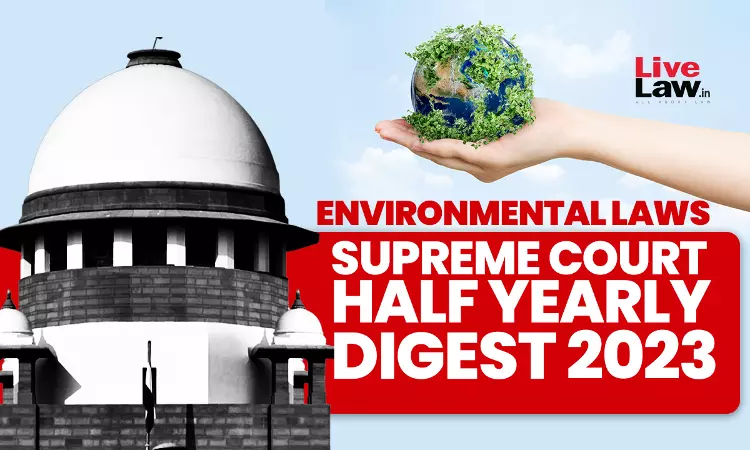Supreme Court Half Yearly Digest 2023 - Environmental Laws
LIVELAW NEWS NETWORK
1 Nov 2023 5:18 PM IST

Next Story
1 Nov 2023 5:18 PM IST
Aarey Case - The Supreme Court imposes Rs. 10 lakh fine on Mumbai Metro Rail Corporation Ltd (MMRCL) for seeking to cut more trees than allowed; but allows it to cut 177 trees. In Re: Felling of Trees in Aarey Forest (Maharashtra), 2023 LiveLaw (SC) 334 : 2023 INSC 381Appeal maintainable before NGT against corrigendum imposing additional conditions to environmental clearance. IL&FS Tamil...
